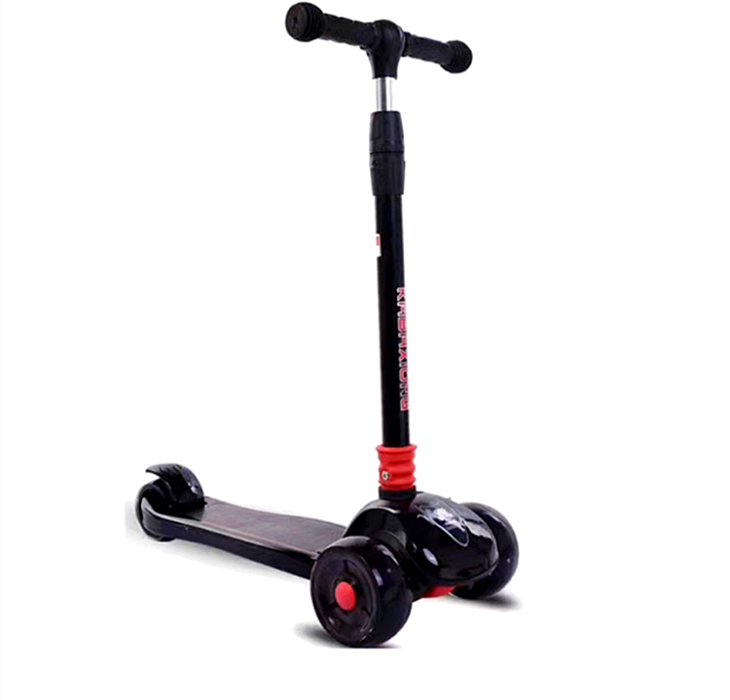10 月 . 15, 2024 03:24 Back to list
Exploring the Production of Baby Scooters in Manufacturing Facilities Worldwide
The Rise of Baby Scooter Factories A Trend in Modern Parenting
In recent years, the market for children's goods has seen a significant transformation, with a notable surge in the popularity of baby scooters. As parents seek innovative ways to promote outdoor activity and provide their children with the joy of movement, the demand for high-quality, safe, and stylish baby scooters has skyrocketed. This trend has led to the emergence of numerous baby scooter factories, each vying to cater to a growing niche within the parenting community.
The Growing Popularity of Baby Scooters
Baby scooters are designed specifically for young children, typically aged two to five. These scooters are lightweight, easy to maneuver, and often come with features like adjustable handlebars and non-slip decks, ensuring that they are safe for little ones. As more parents recognize the importance of physical activity for their children's development, baby scooters have become a favored choice for family outings and playtime in parks.
Moreover, baby scooters offer benefits beyond physical health. They encourage outdoor playtime, foster a sense of independence, and help develop coordination and balance. Many parents appreciate how these scooters can keep children engaged while allowing them to explore their surroundings, making them an attractive investment for families.
The Role of Factories in Meeting Demand
As the demand for baby scooters grows, factories dedicated to their production have emerged around the world. These factories have embraced modern manufacturing processes and technologies to create innovative designs that appeal to both children and parents. Many of these facilities have focused on quality assurance, ensuring that the materials used are non-toxic and safe for children.
The factories often employ skilled labor and utilize advanced machinery to streamline production and maintain high safety standards. With a mix of creativity and functionality, the design process in these factories frequently involves pediatric experts to ensure that scooters meet the developmental needs of children.
In addition to traditional brick-and-mortar factories, the rise of e-commerce has also influenced how baby scooters are produced and marketed. Many baby scooter manufacturers have adopted a direct-to-consumer model, which allows them to bypass middlemen and sell their products online. This approach not only cuts costs but also provides valuable insights from customer feedback, enabling continuous improvements in product design and features.
baby scooter factories

Sustainability A Priority for Manufacturers
In today's eco-conscious world, sustainability has become a crucial consideration for manufacturers, including those in the baby scooter industry. Many factories are now focusing on using sustainable materials, such as bamboo or recycled plastics, to minimize their environmental footprint. Additionally, efforts are being made to implement eco-friendly manufacturing practices that reduce waste and energy consumption.
Parents increasingly prefer brands that demonstrate a commitment to sustainability, which has encouraged baby scooter factories to explore greener production methods. Some companies even go a step further by offering take-back programs to recycle old scooters, contributing to a circular economy.
The Future of Baby Scooters
Looking ahead, the future of baby scooters appears bright. With innovation at the forefront, factories are continually developing new models that incorporate the latest trends in technology and design. Features like smart connectivity, where scooters can be tracked via smartphone apps for safety, or customizable designs that allow children to express their individuality, are becoming increasingly popular.
As the role of play in child development is further emphasized by experts, baby scooters are likely to remain staple items in family households. The collaboration between manufacturers, designers, and parents will play a pivotal role in shaping the next generation of baby scooters, ensuring they meet the evolving needs of growing children.
Conclusion
The emergence of baby scooter factories reflects a larger trend towards active play in early childhood. With their focus on safety, functionality, and eco-friendliness, these factories are not just meeting the demands of modern parenting but also shaping a healthier, more active future for children. As scooters continue to gain popularity, the industry stands poised for growth, offering exciting opportunities for innovation and sustainability in the years to come.
-
Children Tricycle Factory Custom Designs & Safety Certified
NewsMay.30,2025
-
Best Scooters for Teens Top-Rated, Safe & Durable Rides for 2023
NewsMay.30,2025
-
Affordable Mini & Baby Bicycle Prices Best Deals & Discounts
NewsMay.29,2025
-
20-Inch Kids Tricycle Adjustable Seat, Safe & Durable Design
NewsMay.29,2025
-
20 Inch Kids Bikes Lightweight, Adjustable & Durable Designs
NewsMay.29,2025
-
Magnesium disc Bicycle wholesale children bicycle wholesale children mountain balance bicycle
NewsMar.07,2025
